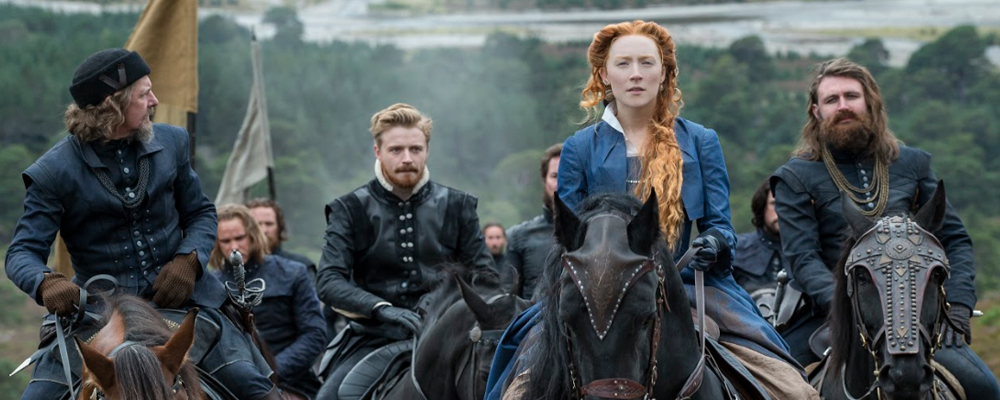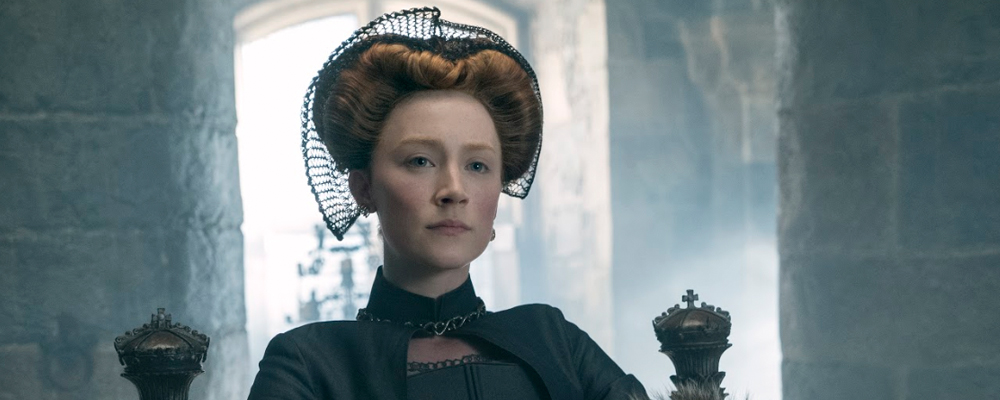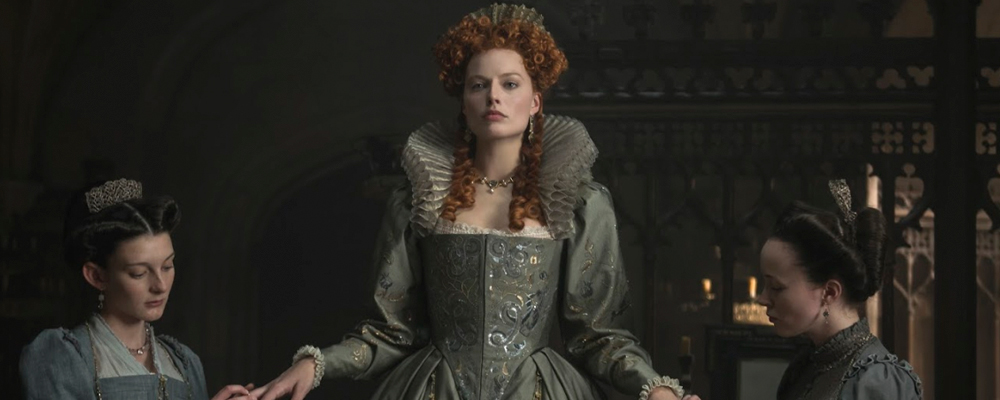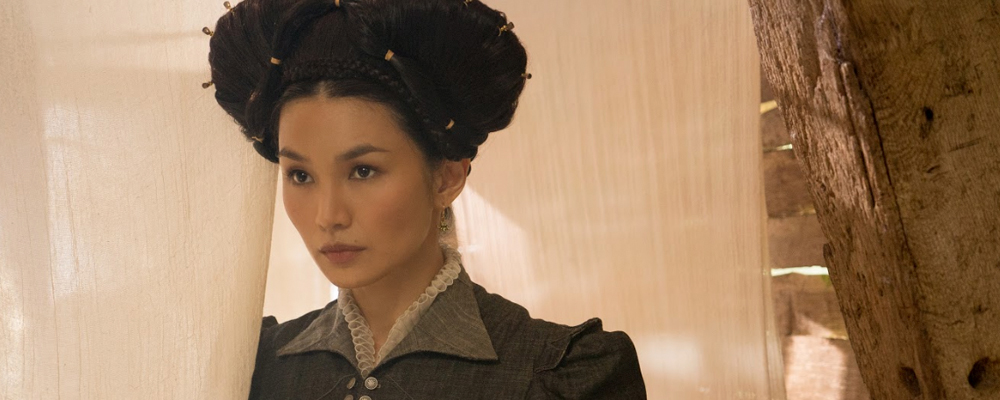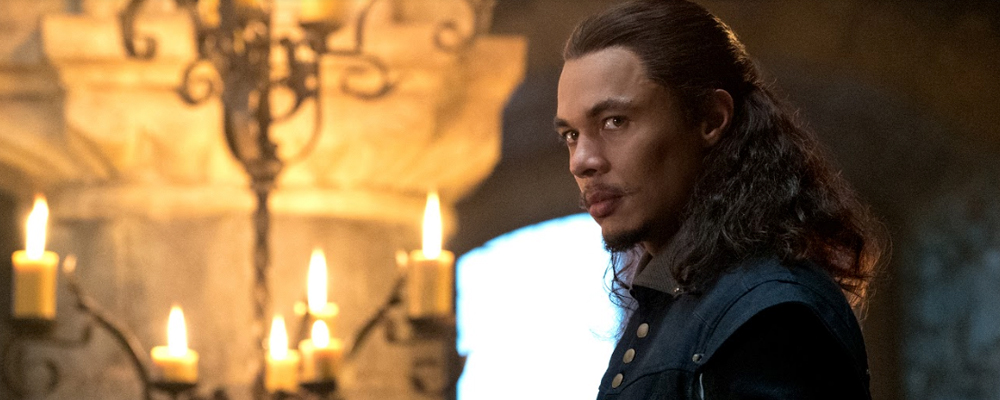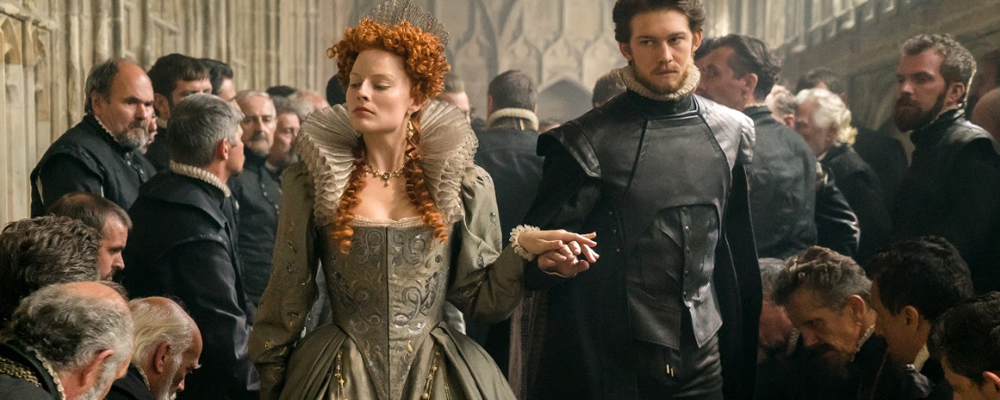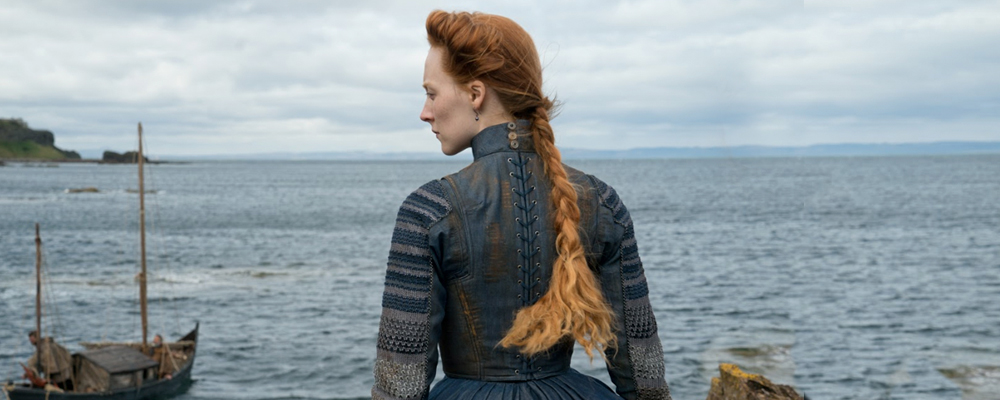‘Mary Queen of Scots’ Is a Compelling Tale of the Controversial Monarch
Sandra Miska
When it comes to rivalries, few have reached the heights of that of Mary, Queen of Scots and England’s Elizabeth I. Even the feud between Joan Crawford and Bette Davis could never compare with the struggle between these two cousins, whose complicated relationship is the core of “Mary Queen of Scots,” an enthralling period drama that pairs together two of the most talented young actresses working today, Saoirse Ronan and Margot Robbie.
With three Oscar nods under her belt at age 24, Irish actress Ronan is the natural choice to play Mary, who is first shown in 1587 on the way to her execution, a spoiler for those who need to to brush up on their European history. Flashback to 26 years earlier, and we see Mary returning to Scotland 13 years after she she was sent to France for her own safety. There, she married the frail future king, and after a brief reign of queen consort, the 18-year-old widow has come back to rule over her own kingdom. The rough crossing does little to prepare her for the dangerous political situation that awaits her, as this predominantly Protestant nation, which has been presided over by Mary’s illegitimate half-brother, James, Earl of Moray (impressive newcomer James McArdle) in her absence, isn’t the most welcoming place for a French Catholic queen. Here, we see just how easily civil wars break out, as Mary’s plan for religious tolerance alienates some of her Catholic supporters, while doing little to appease the Protestants, especially John Knox (David Tennant), an infamous misogynistic reformer.
There is one woman whose rule Knox and the Protestant Scots would welcome, and that’s none other than Elizabeth Tudor (Robbie), the formidable queen across the water. Perceiving a threat from her her cousin, the closest claimant to her throne, she attempts to neutralize her by offering up her own favorite, Robert Dudley (Joe Alwyn), as a potential bridegroom, promising to name her as her successor if she accepts. After Mary calls her bluff, Elizabeth sends over another British nobleman, their mutual cousin, the feather-headed Henry, Lord Darnley (Jack Lowden). It is Mary’s lust for Henry and desire to best Elizabeth by producing an heir that leads her to make this impetus marriage, with predictably disastrous results.
There are many rumors about the hedonistic lifestyle of the historical Darnley, including that he engaged in sexual affairs in men as wells as women. Screenwriter Beau Willimon and director Josie Rourke decide to run with Henry’s being gay, and at first glance this could seem like a homophobic way to amplify his weakness. However, the intention here was most likely to paint Mary in the most favorable light. Here, the staunchly Catholic queen is shown being compassionate to her Italian secretary, David Rizzio (Ismael Cruz Cordova), after he comes out to her. She even forgives him for sleeping with Henry. In reality, it was Mary who was rumored to have had a romance with Rizzio, but that doesn’t fit in with the idealized portrait of the Scots queen that is being presented here. The last act deals with the disasters that occur during the final year of Mary’s reign, including a murder, and while historians are split when it comes to Mary’s involvement in certain controversial events, here she struggles to maintain her dignity and her crown as she is used as a pawn in the hand of ambitious men, including the ruthless Lord Bothwell (Martin Compston).
However romanticized “Mary Queen of Scots” is, it fits in well in the era of #MeToo. Ronan and Robbie give phenomenal performances, especially when they finally come face to face. Even today the idea of a woman leading a country is hard for many to swallow, making the plight of these sixteenth centuries queens, who had to be both powerful and perfect examples of femininity, resonate even in our supposedly more enlightened times. History buffs will find much to pick at here, but Willimon and Rourke, along with the actresses, do an excellent job of creating this world of women, not only with Mary and Elizabeth, but also the women who wait on them. While Ronan as Mary exudes strength in public, she really taps into the queen’s vulnerability when it matters, most poignantly after a demeaning go at sex with her husband. Afterwards, her ladies find her holding her knees, asking them to pray for her to conceive.
“Mary Queen of Scots” opens Dec. 7 in select theaters, expanding nationwide throughout the month.

